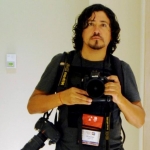Life in the time of coronavirus: the epicenter
For eight days, an AFP team reported from the ground zero of the coronavirus epidemic sending shudders across the globe. Leo Ramirez, Hector Retamal and Sebastien Ricci filmed, photographed and wrote about the city of Wuhan in China, where the virus originated, as the metropolis of 11 million was shut off from the rest of the world.
Here they tell their story from a holiday resort in southern France, where they were brought in an evacuation organized by the French authorities and where they are being held in quarantine to make sure they did not contract the deadly virus.
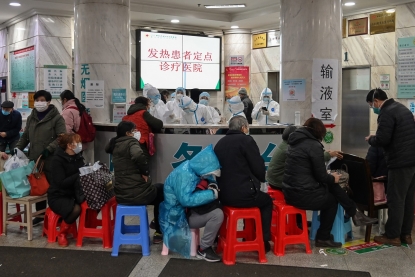 Waiting room at a Wuhan hospital, January 24, 2020. (AFP / Hector Retamal)
Waiting room at a Wuhan hospital, January 24, 2020. (AFP / Hector Retamal)Leo Ramirez, video
Is my throat starting to hurt? Am I starting to feel warm? Do I have it? Those questions were always in the back of my mind during the eight days that I spent in Wuhan.
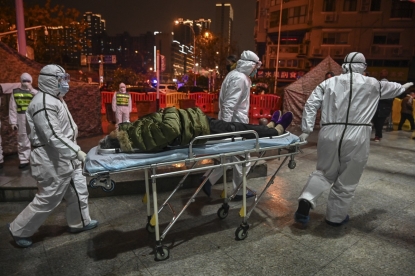 A hospital in Wuhan, January 25, 2020. (AFP / Hector Retamal)
A hospital in Wuhan, January 25, 2020. (AFP / Hector Retamal)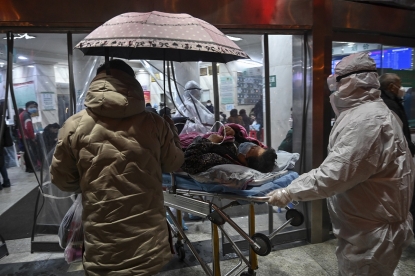 A hospital in Wuhan, January 25, 2020. (AFP / Hector Retamal)
A hospital in Wuhan, January 25, 2020. (AFP / Hector Retamal)
Before being evacuated into quarantine in southern France on Friday, we were the only team from an international news agency to be in the city, the epicenter of the virus that had by Sunday killed over 300 and infected more than 10,000 in China alone and has sowed panic as victims have popped up in all corners of the globe.



The footage that I shot during that period is among the strongest that I’ve shot in my 10 years with AFP. I saw both the saddest and bravest face of this outbreak, with hundreds of volunteers risking their lives and medical staff working non-stop.
There were two challenges -- telling this important story and also making sure that you didn’t become part of the story by catching the virus.
There is no fool-proof way of insulating yourself against the invisible enemy, but there are things you can do to lower your chances of contracting the virus -- wearing a face mask all the time, surgical gloves and goggles, obsessively washing your hands, eating meals at regular times, taking vitamins.
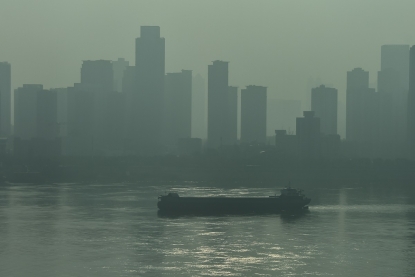 Wuhan, January 28, 2020. (AFP / Hector Retamal)
Wuhan, January 28, 2020. (AFP / Hector Retamal)At the entrance to our hotel, there was a ritual -- you had your temperature taken and would only be allowed inside if it was less than 37.0 C. After three days working in Wuhan, I was scared of this ritual. After a whole day of working at sensitives places, the worst part was entering the hotel and going through the body temperature checkpoint.
One day, my worst fears came true. The thermometer showed 37.6 for me. Not to panic, sometimes a thermometer can be off. So we took my temperature again. Again 37.6. Third time. Same result. Now I and everyone around me were beginning to get that sinking feeling. They took my temperature again, this time with a different thermometer. This time it showed a 36.6 and everyone breathed a little easier.
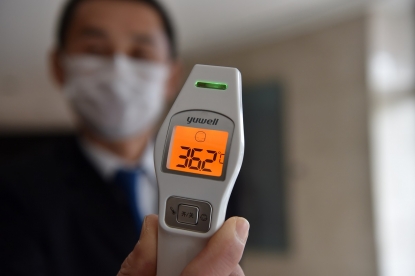 (AFP / Hector Retamal)
(AFP / Hector Retamal)As we went about our day, I was very aware of my body. If I got the urge to cough, I suppressed it, so that I wouldn’t be stigmatized. You just keep telling yourself all day ‘don’t cough, don’t sneeze, hope that glove wasn’t ripped.’ If someone sneezes on your jacket, you’re very aware of it.
Every day, we would leave the hotel empty-handed and we would return full of information. I feel really bad for leaving. It has really bothered me to have to do so. I feel like I should be there, recording what’s happening.
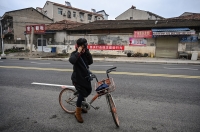
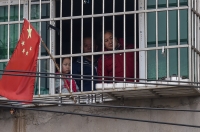
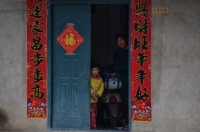
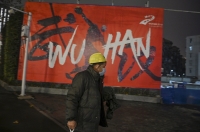
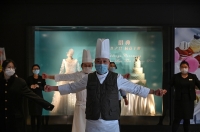
Sebastien Ricci, text
Wuhan felt like a ghost city when we got there. The plane on which we flew was nearly deserted -- there were only about 30 people, mostly Chinese going to rejoin their families who stared at us in a daze. It was like flying to Pyongyang.
When we landed, the airport was deserted, the highways were empty, there was no-one on the streets.
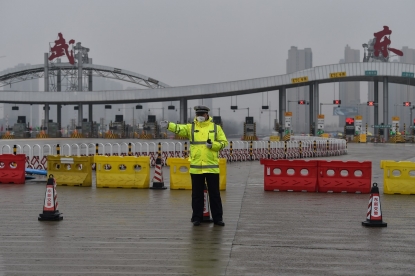 Roadblock at the entrance to Wuhan, January 25, 2020.
(AFP / Hector Retamal)
Roadblock at the entrance to Wuhan, January 25, 2020.
(AFP / Hector Retamal)This emptiness was all the more striking given that it was around the Lunar New Year, which is the most important holiday in China, when streets are usually filled with people preparing for or revelling in the holiday.
One of the things that struck me, having worked in China for nearly 10 years, and that really brought home the point that something serious was amiss was the police.
They mostly ignored us and just let us get on with our work. Usually they keep a close eye on Western journalists and put up barriers to reporting. I suppose they had their hands full.
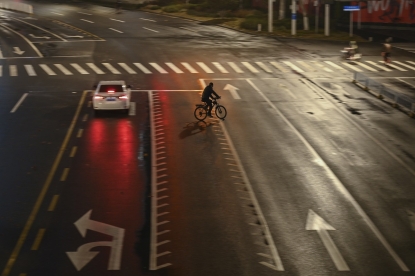 Wuhan, January 26, 2020.
(AFP / Hector Retamal)
Wuhan, January 26, 2020.
(AFP / Hector Retamal)It’s in my nature to go to difficult places -- I’ve been to Afghanistan, Iran, Kurdistan. It’s in hard places where you often see the greatest human warmth and where you have the most memorable encounters with other human beings. And so it was in Wuhan.
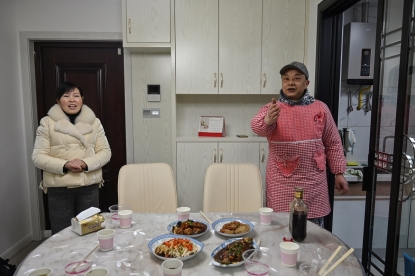 Pen Lixing, left, and her husband, Wang Yangong, prepare to celebrate the Lunar New Year without their son, who could not return home to Wuhan because of the coronavirus, January 24, 2020. (AFP / Hector Retamal)
Pen Lixing, left, and her husband, Wang Yangong, prepare to celebrate the Lunar New Year without their son, who could not return home to Wuhan because of the coronavirus, January 24, 2020. (AFP / Hector Retamal)One day we called a local family. To our surprise, they invited us over to their apartment. When we got there, we found the table set. They had been expecting their son for the New Year, but he couldn’t come, so they were very happy to share this time of the year with someone.
They offered us tea. We first declined -- we had just come in from the outside and we didn’t want to risk contaminating them. But they insisted and insisted, so eventually we relented, took off our masks and had tea with them. It was a really touching moment for me -- at a time when people had all the reason to distrust one another, this couple showed such warmth.
We only came across death directly once. I was at the hotel, finishing a story when I got a frantic call from Leo. “Come to this address at once by bike,” he said before hanging up. Hope nothing’s happened to him, I thought, heading out the door. Then my deputy bureau chief called from Beijing. “Go join Leo right away.” Now I was expecting something serious.
When I arrived, I saw a body of a man laying on the road, not far from a hospital. He still had his white face mask on. Police in jumpsuits were standing around and no-one was approaching him. We’ll never be able to confirm that he actually died from the virus. But in a country like China, it was really telling that a guy had been left on the road 50 meters from a hospital entrance for two hours.
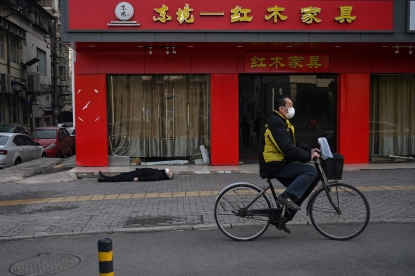 This photo taken on January 30, 2020 shows a man wearing a facemask cycling past an elderly man who had died on the pavement near a hospital in Wuhan, China. (AFP / Hector Retamal)
This photo taken on January 30, 2020 shows a man wearing a facemask cycling past an elderly man who had died on the pavement near a hospital in Wuhan, China. (AFP / Hector Retamal)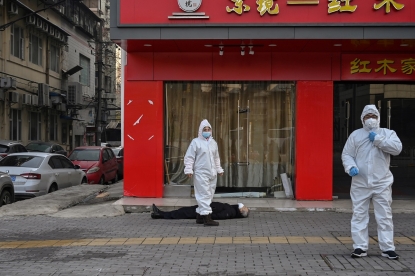 Officials in protective gear check on an elderly man who had collapsed and died on a sidewalk near a hospital in Wuhan, China, January 30, 2020. (AFP / Hector Retamal)
Officials in protective gear check on an elderly man who had collapsed and died on a sidewalk near a hospital in Wuhan, China, January 30, 2020. (AFP / Hector Retamal)The flight out of Wuhan to France was a bit surreal. The airport felt like it had been set up just for us. There were no displays for flights, we were given a ticket with a flight number but without a destination. Some passengers joked that we were all heading to summer camp, as we were going to pass two weeks in quarantine. Others weren’t in the mood to talk at all -- some of them had to leave some family members behind.
I didn’t really have time to reflect before, as I was working. But now I do and one of the things that sticks in my mind is the fighting spirit of the people of Wuhan. Faced with this ordeal, many of them just went on with their lives.
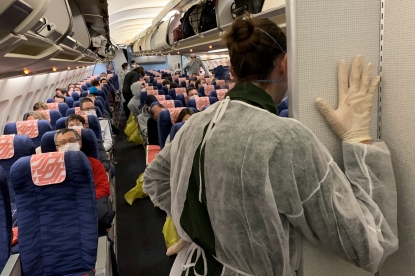 On the plane evacuating French citizens, January 31, 2020.
(AFP / Hector Retamal)
On the plane evacuating French citizens, January 31, 2020.
(AFP / Hector Retamal)Hector Retamal, photo
I have had to cover a lot of things like this before. In 2010 I was in Haiti when a cholera outbreak killed more than 9,000 people. In Chile, I once spent three months living in a tent in the desert as I covered the story of 33 miners trapped 700 meters below ground.
One of the things that struck me the most was how the local people were so eager to tell their stories. They would seek us out and start sharing. Which apparently doesn’t happen often in China. Once they wanted to take me inside the hospital to show me how patients had to wait to be examined. There were many people who were very scared.
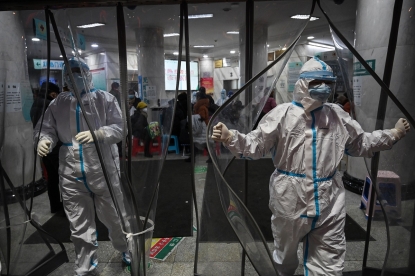 A hospital in Wuhan, January 25, 2020.
(AFP / Hector Retamal)
A hospital in Wuhan, January 25, 2020.
(AFP / Hector Retamal)As a team, you could say we’ve just changed prisons. In Wuhan, we were in a gray winter city from where we couldn’t leave and where we had our temperature taken on a regular basis.
Now we’re at a holiday resort on the coast of the Mediterannean, guarded by police. We still can’t leave and we still have our temperature taken on a regular basis (so far, so good, fingers crossed).
When you cover something like this, you don’t just forget it. And all of this is shocking in a way. But I need to be well to keep doing my work.
This blog was written with Michaela Cancela-Kieffer and Yana Dlugy in Paris.




